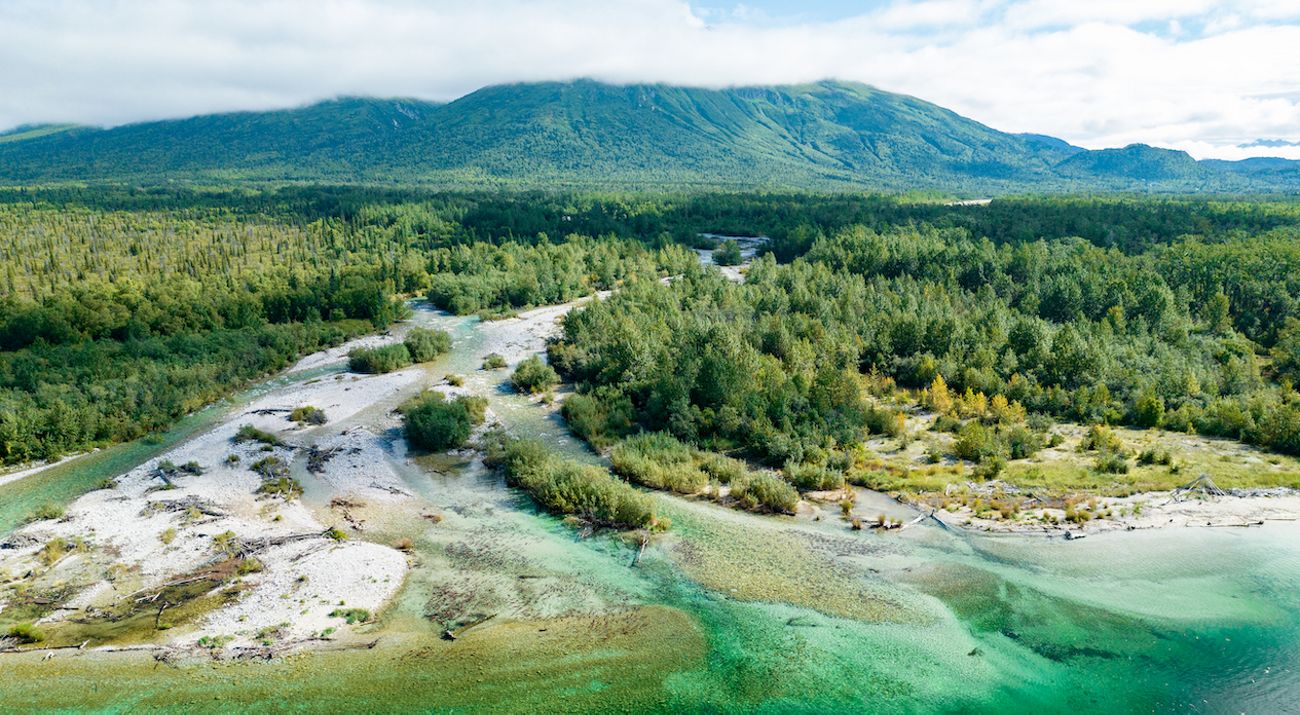Media Contacts
-
Amy Miller
Media Contact
The Nature Conservancy in Alaska
Phone: 907-229-3524
Email: amy.l.miller@tnc.org
Today, Alaska Rep. Mary Peltola introduced her “Bristol Bay Protection Act” to codify and affirm the findings of the U.S. Environmental Protection Agency in protecting the proposed Pebble mine site in Alaska’s Bristol Bay from industrial mining forever.
Bristol Bay is home to the world’s largest wild sockeye salmon run, which feeds millions of people around the globe and is a primary subsistence food source for Alaskans in Bristol Bay. The bill builds on the EPA’s Final Determination of January 2023 by seeking to turn these protections into law, permanently.
“There aren’t many places left like Bristol Bay,” said Ivy Spohnholz, director of The Nature Conservancy in Alaska. “All along the West Coast, the federal government spends billions of dollars trying to resuscitate fisheries that have collapsed due to dams, development, pollution and other factors. Right now, things in Bristol Bay work well, providing food and jobs sustainably in a way that can support generations of Bristol Bay families to come. We stand with our partners in Bristol Bay in wanting to see that continue.”
Substantial majorities of people in Bristol Bay and across Alaska support permanent protections for Bristol Bay, a goal shared by more than 30,000 supporters of The Nature Conservancy, who weighed in during public comment opportunities on the EPA’s Clean Water Act review.
“Lawmaking is a process,” said Spohnholz, a former Alaska state legislator. “With this bill, Rep. Peltola is initiating a process designed to provide the protections Bristol Bay needs and deserves, and we applaud and thank her for her leadership.”
If developed as proposed, Pebble would be one of the largest open pit mines in the world. Protections put in place by the EPA last year cover nearly 130 miles of streams and over 2,100 acres of wetlands and other waters supporting salmon habitat, but do not cover the entire watershed on which Bristol Bay’s famous sockeye salmon depend.
Bristol Bay has been scientifically shown to have unparalleled ecological value and is of particular importance to Alaska Native people and communities.
TNC Alaska has been active in Bristol Bay for more than 20 years, contributing significant financial resources to scientific analysis, the creation of conservation easements along critical transportation corridors, and the development of a healthy regional economy. TNC Alaska has also worked to elevate local and Indigenous stewardship and authority over Bristol Bay’s lands and waters, supporting the efforts of the region’s Indigenous Peoples, including 31 federally recognized Tribes, to achieve their vision of prosperous and resilient communities connected to the lands and waters that have sustained them for millennia.
TNC Alaska was established in 1985, and is the Alaska-based affiliate of The Nature Conservancy. The Nature Conservancy is the world’s largest environmental nonprofit, with chapters in all 50 states and 79 locations worldwide. TNC Alaska’s work is focused on climate solutions, thriving communities and sustainable fisheries in Southeast Alaska, Bristol Bay and around the state. Learn more at nature.org/alaska.
The Nature Conservancy is a global conservation organization dedicated to conserving the lands and waters on which all life depends. Guided by science, we create innovative, on-the-ground solutions to our world’s toughest challenges so that nature and people can thrive together. We are tackling climate change, conserving lands, waters and oceans at an unprecedented scale, providing food and water sustainably and helping make cities more resilient. The Nature Conservancy is working to make a lasting difference around the world in 81 countries and territories (40 by direct conservation impact and 41 through partners) through a collaborative approach that engages local communities, governments, the private sector, and other partners. To learn more, visit nature.org or follow @nature_press on X.
